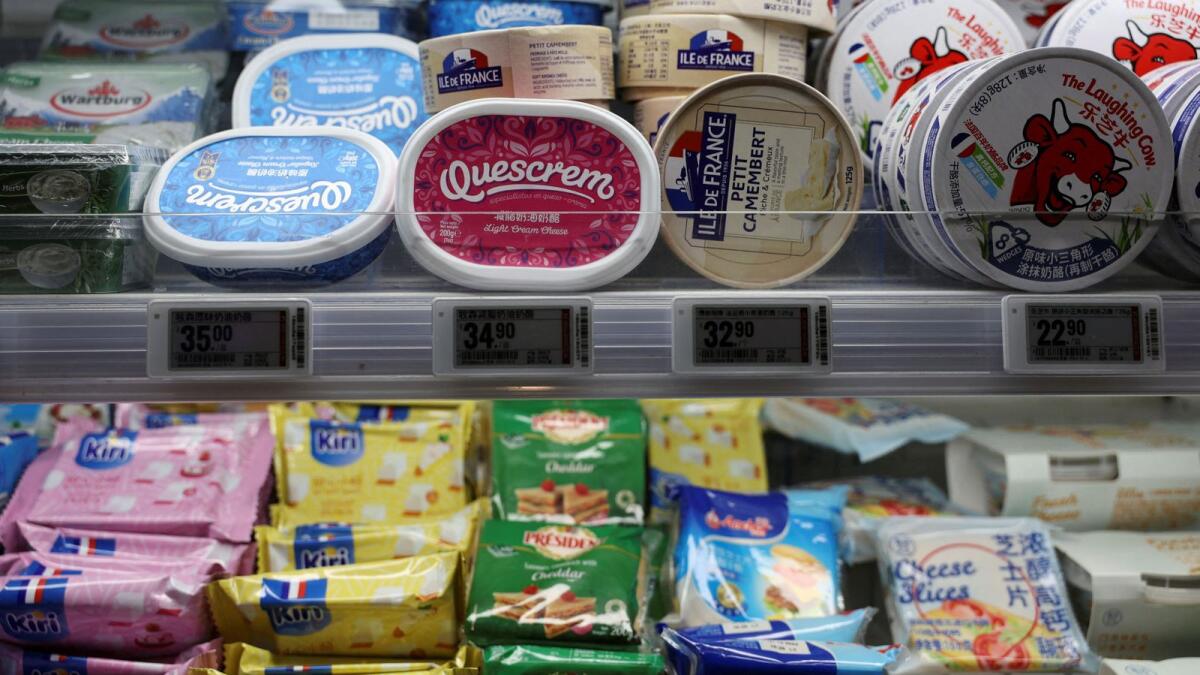Beijing has initiated an investigation into EU subsidies on some dairy products imported into China, following the bloc’s decision to impose import duties on Chinese electric vehicles. The probe covers items such as fresh cheese, blue cheese, milk, and cream. The Ministry of Commerce announced the anti-subsidy investigation, responding to an application from the Dairy Association of China and consultations with the EU. The investigation will focus on EU subsidy schemes implemented in the year up to March 2024 and the impact on China’s domestic industry.
The investigation targets major EU policies like the common agricultural policy and national subsidy plans in several countries, including Ireland, Austria, and Belgium. The probe will last a year, with the possibility of a six-month extension under special circumstances. Last year, the EU exported 1.68 billion euros worth of dairy products to China. The EU Chamber of Commerce in China expressed that the investigation was expected following the EU’s imposition of import tariffs on Chinese EVs.
This development comes after the EU announced plans for five-year import duties on Chinese EVs, unless China can offer an alternative solution to resolve the trade dispute over state subsidies. China filed an appeal with the WTO over the tariffs, calling the EU’s decision “protectionist and politically driven.” Beijing has criticized the tariffs as damaging global efforts to address climate change and green transformation processes. The EU has launched further investigations into Chinese subsidies for various transport and green energy firms.
Both Beijing and Brussels have initiated probes into each other’s imported products, showcasing the escalating trade tensions between the two economic powers. The EU has sought to protect its auto industry and promote green growth while avoiding a direct confrontation with Beijing. However, China’s retaliatory measures indicate a tit-for-tat response to the trade disputes. The ongoing investigations and tariffs may impact businesses and industries in both regions, prompting concerns about the future of trade relations between China and the EU.









